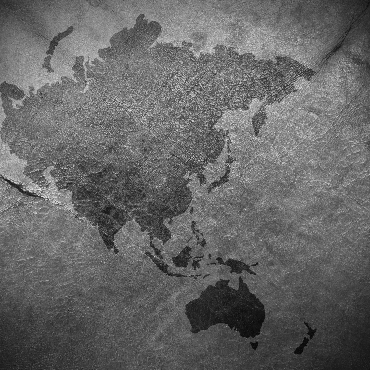VIETNAM-INDIA HIGH TECH COOPERATION RAMPS UP
VinFast, Vietnam's electric vehicle (EV) maker, signed a $500,000 agreement at the beginning of the year to set up its first manufacturing facility in Tamil Nadu, India. The company is planning on breaking ground on the EV and battery manufacturing plant later in 2024, and expects to create more than 3,000 new jobs in India's southernmost state. While 90% of India's EVs are motorbikes, scooters, and rickshaws rather than cars, Prime Minister Narendra Modi has set a national goal to increase the total percentage of electric cars sold in India from two percent to 30 percent by 2033. VinFast, which faced difficulties breaking into the U.S. market after opening a $4 billion EV factory in North Carolina, is now hoping to tap into India's market, the world's third-largest. VinFast aims to sell its products in 50 markets across the globe by the end of the year. (South China Morning Post, January 6, 2024)
NEW DELHI FLEXES ITS NAVAL MUSCLE
Amid ongoing attacks on Red Sea shipping by Yemen's Houthi rebels, India has been assuming a greater role in the maritime sphere. As part of New Delhi's quest to combat piracy and the hijacking of commercial ships, and to demonstrate its naval prowess, India has deployed "two frontline warships in the Gulf of Aden and at least 10 warships in the northern and western Arabian Sea." While India has yet to join the U.S.-led task force for the Red Sea, the recent actions by the Indian Navy are unprecedented, marking the "largest deployment in the Gulf of Aden and Western Arabian Sea." As of now, India's naval presence is greater than that of any other country in the Gulf of Aden and Western Arabian Sea region - underscoring India's growing aspirations to portray itself as a dependable global power. Notably, New Delhi's deployment serves another purpose as well: illustrating its capabilities as a potential maritime counterforce to China in the Indo-Pacific. (Times of India, February 2, 2024; Observer Research Foundation, February 7, 2024)
INDIA, FRANCE STRENGTHEN TIES
On January 25th and 26th, French President Emmanuel Macron attended India's 75th Republic Day celebrations with the special status of "Chief Guest." While Macron's visit was officially ceremonial, it also turned out to be substantive, with negotiations over a significant multi-billion-dollar deal for the Indian military to purchase French fighter jets and submarines. Notably, the two countries have shared a strong bond for decades, with France ranking as India's second largest arms supplier. In a testament to the importance of the bilateral relationship, Macron's Republic Day visit was the fifth time he and Prime Minister Narendra Modi have met since last May. Modi also took part in France's Bastille Day Celebrations in July as the guest of honor, when he was granted France's highest award, the Legion of Honour. Preceding that trip, New Delhi approved a $9.62 billion purchase from France of 26 Rafale jets and co-production of three Scorpene class submarines.
France and India's close ties aren't limited to the military sphere. Indian tourists now make up the second largest group of foreign visitors to the Eiffel Tower ever year. As a result, during the Republic Day celebrations, Unified Payments Interface (UPI) was officially launched, making it easier for Indian tourists to pay for their trips in Indian rupees. (Reuters, January 24, 2024; Times of India, February 2, 2024)
PAKISTAN'S TUMULTUOUS ELECTION
For the last month, elections in Pakistan have dominated domestic and international headlines. Since the imprisonment of former-cricketer-turned-politician Imran Khan and his wife Bushra Bibi in 2023, the pair have been charged with a litany of crimes, barring them from politics for 10 years. Once it was clear that Khan would not be able to run, members of his party, the Pakistan Tehreek-e-Insaf Party (PTI), ran as independents against former Prime Minister Shehbaz Sharif and his party, the Pakistan Muslim League-Nawaz (PML-N). In an unexpected twist, Khan's supporters won a plurality of seats, but not enough to gain control of the chamber. Consequently, the PML-N and Pakistan People's Party (PPP) formed a minority coalition government, and Sharif was elected as Prime Minister on March 3rd. However, the 93 seat win for Khan's supporters suggests that the Pakistani military's usually tight grip on national affairs may be slipping.
Notably, the elections have been marred with numerous claims of fraud, especially since the country's mobile phone network was shut off on election day. One senior official turned himself into the police stating "we converted the losers into winners, reversing margins of 70,000 votes in 13 national assembly seats," implying that the election commission head and Pakistan's top judge were involved in the corruption. The Western world has taken notice, with the U.S., EU, and UK all expressing concerns over election interference and urging a proper investigation. (Reuters, February 9, 2024; Agence France-Presse, February 17, 2024; Reuters, February 27, 2024)
Want these sent to your inbox?
Subscribe
South Asia Strategy Monitor No. 14
Related Categories:
International Economics and Trade; Terrorism; Warfare; Border Security; Europe; France; India; Pakistan; Southeast Asia; Vietnam

